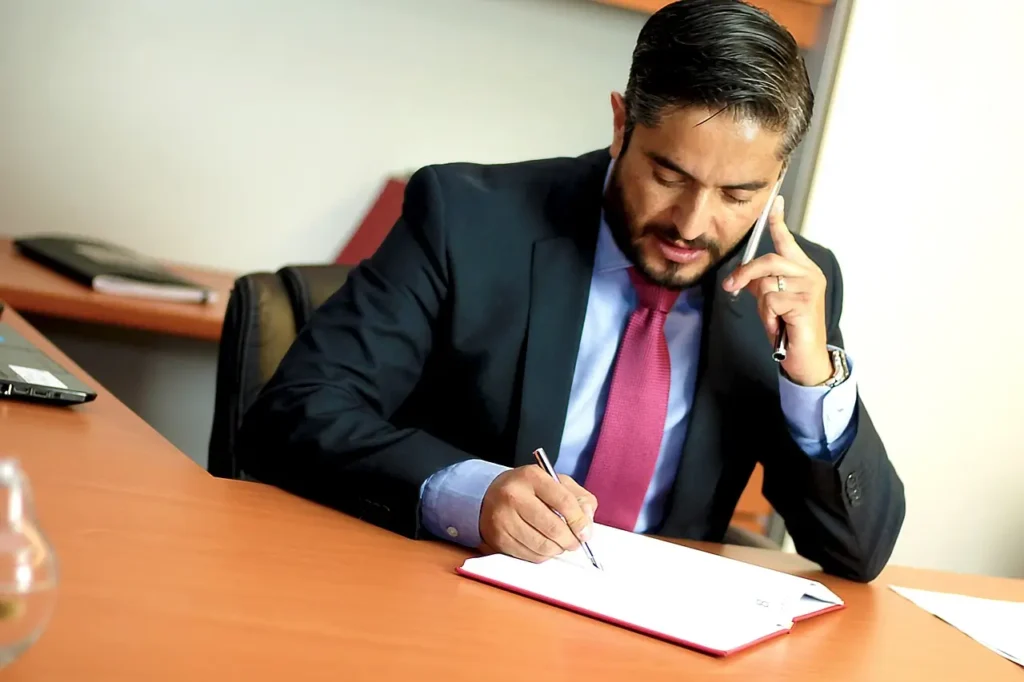You might want to think about managing your credit card debt if you have missed a lot of payments over several months. The credit card company or collection agency may be willing to take less than what you owe them if they think they won’t be paid at all. When all other options for debt reduction have been exhausted, it is sometimes employed as a last resort.
Here’s all you should know about credit settlements of credit card debt.
Table of Contents
Options of How to Settle Credit Card Debt
Here are some various options for paying off your credit card debt. You can either settle your debt yourself or pay an attorney or agency to accomplish it for you. In any case, there is no assurance that the company that owes the money will agree to a settlement. Be aware of anyone who claims to offer debt settlement services and guarantees such results. In their need to pay off debt, many people are exposed to frauds from debt relief organizations or other resources. Examine a person’s background, history, and performance history before taking them on as your debt settlement representative.
Settle the Debt Yourself
When determining whether to settle debt on your own or hire someone to negotiate on your behalf, weigh the advantages and disadvantages of both options. Hiring someone is more expensive, but paying off debt on your own might be risky. The law can come into play, and if you don’t know what to look for, you could end up digging yourself further into debt and spending more money later to repair your mistakes. Consider your alternatives and decide what is best for your situation.
Read More: Mastering Debt: Your Simple Guide to Smart Borrowing Strategies
Hire a Debt Settlement Attorney
A debt settlement attorney can assist you in considering aspects such as federal and state legislation, debt statutes of limitations, time-barred debts, if you are judgment-proof or have a lien due to previous obligations, credit reporting and tax repercussions, among other things. They may also grasp how specific creditors or collection agencies operate and what types of offers they are likely to accept.

When you’re already trying to make ends meet, it might be tough to grasp the concept of legal fees. A legal aid office may be able to help you find an attorney at a lower rate, but they are often in high demand. The cost of hiring a private attorney varies depending on the sort of work involved. They may charge a fixed cost for each creditor, a percentage of the debt erased, or an hourly rate.
Attorneys are supposed to adhere to ethical norms, although some have been known to charge unfairly. When choosing an attorney, search online for customer reviews and complaints, Consumer Financial Protection Bureau (CFPB) actions, and the practitioner’s state bar standing.
Work With a Debt Relief Company
A debt relief company is a possibility, but it has significant risks and fees. According to the CFPB’s website, these companies generally charge hefty fees and rarely follow through on what they say, leaving you worse off economically. You are normally forced to stop paying your bills and instead deposit the money into a savings account. As a result, You may incur late fees, penalty interest rates, and potentially other charges. Expensive service fees could also apply to both the debt and savings accounts, which might undermine your efforts if they wipe out the value of any sums paid. Some creditors may also refuse to deal with specific debt reduction companies.
Is Debt Settlement the Right Move for You?
If you’ve fallen behind on payments for several months, settling your credit card debt can be an option to pursue although it’s far from a quick remedy. This decision can significantly harm your credit and may leave a lasting record.
When a debt is settled, it normally appears on your credit record as not paid in full. This unfavorable mark can remain on your record for up to seven years from the date you first became delinquent.
Even reaching a settlement isn’t easy. The process often includes aggressive calls from collectors, growing interest charges, and the possibility of legal action. And because there’s no guarantee a creditor will accept a settlement, the risks involved can outweigh the benefits if especially if you’re unprepared for the potential consequences.
Read More: How to Get 800 Credit Score in 45 days
How to Negotiate a Settlement on Your Own
Reaching a credit card debt settlement is not a one-size-fits-all strategy, the following steps may not be appropriate for everyone, and they do not take into account other potential commitments. You’ll require certain financial resources to settle debt. If you’re having difficulties managing basic expenses such as shelter and food, bankruptcy may be a possibility.

Step 1: Talk to a Professional First
It can be a good idea to speak with an expert before negotiating debt yourself. They may highlight issues you hadn’t thought of. Although hiring someone on a permanent basis might be out of your price range, a single consultation could assist you in deciding whether to go it alone or seek structured alternatives like a debt management plan.
You can consult with either a credit counselor or an attorney that handles law. Credit counselors are typically less expensive and can perhaps walk you through your options but don’t always perform the negotiations themselves. They help you see your financial situation and if it would be a good idea to do it yourself.
A credit counselor can also help you with budgeting and explain the possible ramifications of various debt management tactics. If a debt management plan is not feasible for you, they may propose that you consult with a legal professional.
Attorneys, on the other hand, are more experienced with the legal aspects of debt settlement. If you do not legally hire someone to represent you, they may only provide generic recommendations rather than specific legal assistance. Still, both professionals have dealt with credit card debt before, so contacting at least one of them is a good idea before proceeding.
Step 2: Know Who You Owe and How Much
Before you seek to settle any debt, it’s crucial to find out exactly who now owns it. A solid beginning point is your free credit report, which you can acquire from annualcreditreport.com. However, keep in mind that not all debts are recorded, such as legal judgments or property liens, which do not often appear on credit reports.
To obtain those facts, contact your local county recorder’s office or court system. Online state-specific information might aid with legal debt collection time constraints (known as the statute of limitations).
These research stages can be complicated, so consulting a specialist early on before attempting to settle on your own is a wise decision. They can help you understand what information you require and how to obtain it efficiently.
Step 3: Review Your Budget and Set Limits
Before negotiating a settlement, you should have a thorough awareness of your financial status. Examine your income, expenses, and monthly budget to determine how much you can afford to offer. It’s also a good time to eliminate unnecessary expenses and switch to cheaper alternatives. Determine the maximum and minimum amount you can reasonably commit to in a settlement.
Make sure your basic living expenses, such as housing, utilities, transportation, and food, are still covered, and try to leave a cushion in your budget for unexpected expenses. Keep in mind that forgiven debt over $600 may result in tax consequences, though in some cases, those taxes can be waived based on your financial situation.
Step 4: Gather Key Info and Documents
After you’ve determined who currently owns each of your debts, acquire their contact information and write it down. Make a list of all the debts you intend to negotiate, including their outstanding balances and a realistic range of offers.
To prepare for the negotiation process, it’s helpful to collect the following:
- A summary of your monthly budget and how much you can realistically settle for
- A recent copy of your credit report
- Any paperwork related to legal judgments or liens
- A written outline of what you intend to say during the call
- A list of questions to ask if a settlement is being offered
Practicing your talking points beforehand can help you stay calm and confident during the conversation. Stick to what you can realistically afford, and don’t let pressure or intimidation lead you to agree to terms that don’t fit your financial situation.
If a settlement is offered, be prepared with follow-up questions such as:
- Can the agreement be provided in writing, and when?
- How will this settlement be reported on your credit report?
- What are the consequences if you miss a payment under the agreement?
- Will the forgiven amount be taxed?
- Will a 1099-C tax form be issued, and when should you expect it?
Step 5: Call and Negotiate with Creditors
After organizing your documents and setting a realistic payment range, it’s time to reach out to the company that holds your debt. Before picking up the phone, keep these important tips in mind:
- Hold off on sharing your bank details until a written settlement agreement is in place.
- Keep a record of each conversation, including names, titles, and the time and date of your calls.
- Note the department and extension number if you’re being transferred, so you can follow up more easily.
- Be persistent. It may take multiple attempts to connect with someone authorized to discuss settlement options.
- Start low. Even if you can offer 50–60% of the balance, start talks at a smaller percentage, maybe 20–30%, to give yourself some leeway.
When speaking to a representative, ask to be connected with someone who handles debt settlements. You might start the conversation with a simple line like:
“I’m hoping to settle this account—can we go over any repayment or settlement options available?”
If you’re asked about your financial situation, try to keep responses simple and focused. Avoid oversharing personal details that could be used to shape their response or limit your options during negotiation.
It’s also important to understand that if the account is still with the original lender and you mention difficulty keeping up with payments, they may choose to close the account as part of their internal process.
Step 6: Get the Deal in Writing
Ask for the agreement in writing and make sure it contains the terms you agreed to before signing. According to Tayne, you may think that you have settled debt, but that may not be the case until you have all the information you need in writing. The agreement should include the name and number of the account settled, the name of the creditor, the date, and the terms depending on whether you will have different payment deadlines or make a lump-sum payment. You can also ask for credit reporting information to be included and anything else that might be pertinent or helpful to record.
Step 7: Follow Through with the Agreement
After successfully negotiating a settlement, it’s important to stick to the terms. Whether the agreement involves a lump-sum payment or a series of smaller installments, missing a deadline can invalidate the deal and lead to additional fees or legal action. Request the full agreement in writing before sending any payments and keep all settlement documentation, including
After paying off the debt, it’s important to monitor your credit report to ensure it accurately reflects the debt was settled. This can help improve your credit profile over time. Additionally, use this as a learning opportunity to develop better financial habits, such as budgeting, emergency savings, and staying on top of future payments.
Read More: Smart Strategies for Managing Debt
Final Thought
Navigating debt settlement can be a challenging but rewarding process. By understanding the steps involved—researching your debt, preparing a solid plan, negotiating effectively, and following through on the agreement—you can take control of your finances and work towards a fresh start. While the road to settlement may be filled with obstacles, staying organized, seeking expert guidance, and adhering to the terms of your agreement can help you achieve your goal of resolving your debt. With the right approach, you can rebuild your financial health and set yourself up for a more secure future.
Take each step thoughtfully, stay patient, and remember that managing your debt is a process, not an overnight fix.

